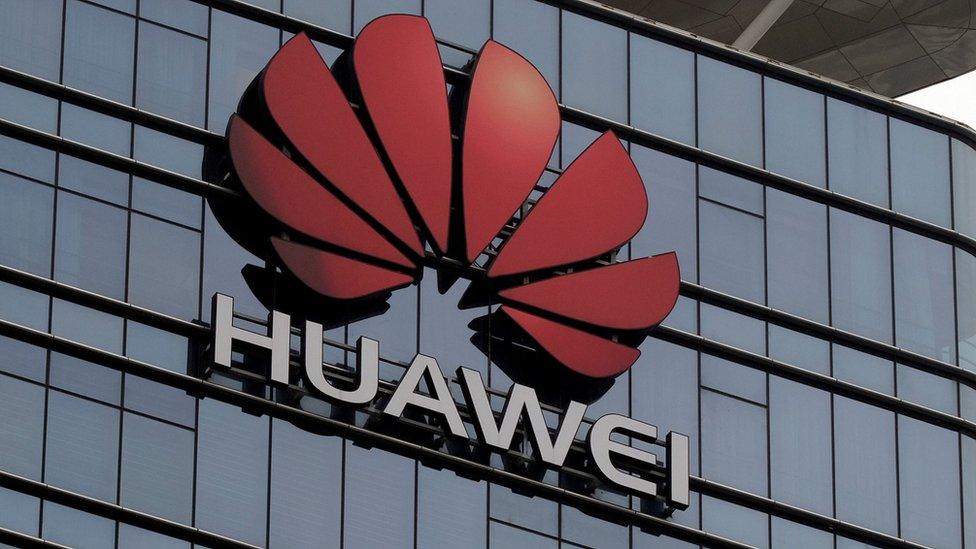Beijing defends Huawei amid row over role in UK's 5G network
- Published

The UK should make "independent" decisions about whether to let Huawei help build its 5G network, according to China's ambassador in London.
The US, Australia and New Zealand say the Chinese firm is a security risk because of its ties to the state.
But , Liu Xiaoming said Britain should resist pressure from other nations.
He said risks should be taken seriously but added the company had enjoyed a "good track record on security".
Last week, the Daily Telegraph reported the UK had agreed to allow Huawei limited access to help build Britain's new 5G network, amid warnings about possible risks to national security.
The paper also reported that various ministers had raised concerns about the plan.
But defending Huawei, Mr Liu said: "Countries of global influence, like the UK, make decisions independently and in accordance with their national interests.
"When it comes to the establishment of the new 5G network, the UK is in the position to do the same again by resisting pressure, working to avoid interruptions and making the right decision independently based on its national interests and in line with its need for long-term development."
Meanwhile, Britain's top civil servant has demanded ministers co-operate with his inquiry into the leaking of discussions about Huawei at the National Security Council.
Former civil service chief describes the Huawei security leak as "outrageous"
Sir Mark Sedwill wrote to ministers on the council and their special advisers after details of the meeting appeared in the media.
Much of the attention has focused on five ministers who were said to have voiced objections to the Huawei decision - Home Secretary Sajid Javid, Foreign Secretary Jeremy Hunt, Defence Secretary Gavin Williamson, International Development Secretary Penny Mordaunt and International Trade Secretary Liam Fox.
All five, however, have either publicly denied being the guilty party or let it be known through aides that they were not responsible.
Cabinet Secretary Sir Mark, who is also the National Security Adviser, is leading the internal inquiry.
- Published26 April 2019
- Published28 January 2020
- Published25 April 2019
- Published26 April 2019